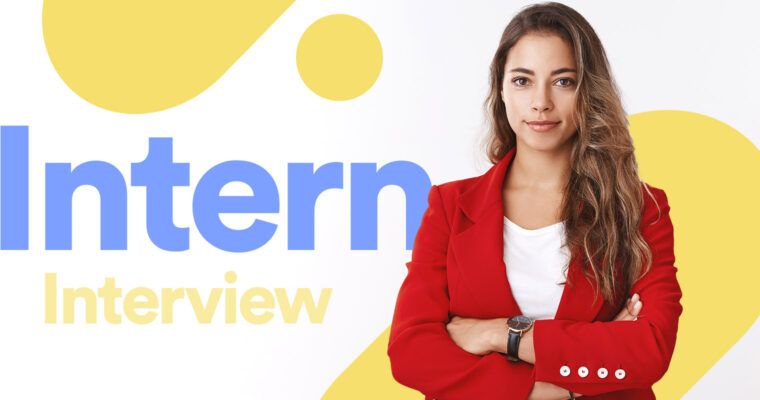
During your job interview, your prospective employer is likely to ask you some behavioral questions. Unlike job-related questions that focus on past performance, behavioral questions help the employer get a better feel for who you are and how you’ll carry yourself on the job.
Here are some of the common behavioral interview questions you can expect, with advice and examples to help you answer them.
Ability to work well with others
1 Tell me about a time you had to work closely with someone whose personality or work style clashed with yours.
It’s okay to be honest here, but don’t bash your former colleague. It’s important to show that you can be flexible and overcome challenges.
“I had a supervisor who was ultra-creative, and so he had a creative person’s impulse-driven approach to projects. I need more structure, so we worked together to develop an Asana project where he could add creative input when inspiration struck, and I had a central place for project notes to keep me on task.”
2 Talk about a time when you made a mistake that affected a colleague. How did you handle it and what was the outcome?
The employer wants to see that you own your mistakes rather than mounting a defense or deflecting blame. Admit something you did, and explain how you corrected the mistake.
“I contacted a lead that my colleague was already working with and ended up taking his sale. When I caught the error, I realized that I’d forgotten to check the client database before reaching out to the lead. I apologized to my colleague and split the commission with him. Then I put some measures in place so that I’d always remember to check the database before getting too enthusiastic about client outreach.”
3 Let’s say you need something important from a coworker and that person isn’t responding. How would you deal with this?
It’s important to show that you’re persistent and able to follow through. Just be careful not to give the impression that you’d be unreasonable or belligerent.
“Things fall through the cracks sometimes. I’d follow up with my coworker by email or Slack, and if that didn’t work I’d check in with him personally. If the problem grew to a point where it was going to be detrimental to the project, I’d ask a supervisor for an assist.”
Time management skills
4 Tell me about a time when you had to manage multiple responsibilities. How did you handle that?
If you’re a great multitasker, you may be tempted to brag. Resist the urge. Instead of trying to make yourself sound like a superhero, try showing your capacity to learn.
“My partner left for a new job right in the middle of a major project and her responsibilities fell to me. It was a huge challenge! I spent a day prioritizing the project steps and created a timeline for keeping everything on track. I ended up putting in some extra hours, but the project was completed by deadline.”
5 Let’s say you’re working on a major project and you’re in the weeds. How do you find your way out?
We all end up in the weeds now and then, so don’t blow off this question by saying it’s never happened to you. Even the most productive rockstar can think of a time when things went south.
“I’ve worked hard to get good at time management, so I’m usually in good shape. But I did once get overwhelmed when I was working on my department’s annual report. I had too much information to compile, and I was overthinking it. I called in a couple of my colleagues to help me sort and prioritize, and we got the report finished on time.”
Professionalism and client-oriented skills
6 Tell me about a time when you went above and beyond to deliver exceptional customer service.
Saying that you go above and beyond every day is a cop-out. Think of a story you can relate here that will demonstrate how much you care about providing great customer service.
“We were preparing to give a video presentation to a potential new client when I learned that someone on their team was deaf. The presentation was scheduled for the following morning, so I stayed late captioning the video so she’d be able to experience it. The client was impressed by our attention to detail and we landed the account.”
7 We all deal with difficult customers from time to time. Tell me about a challenging client-facing situation and how you handled it.
The employer wants to see that you can keep a calm head when difficult situations arise, so share a narrative that shows your ability to resolve conflicts.
“We had a customer who complained frequently and was becoming hostile toward customer service reps. I did some investigating and discovered that our CS agents were repeating the same templated scripts to him and he felt as though his complaints weren’t being heard. I helped devise an escalation system so that this endless CS loop wouldn’t happen again. Then I contacted the customer personally to apologize and thank him for helping us find and fix a glitch in our process.”
Flexibility
8 Sometimes we have an all-hands-on-deck situation that may require everyone to work extra hours. How would you handle that?
Like it or not, we’re working more hours these days. Although you don’t want to become a slave to the office, if your prospective employer has asked you this question, you can be sure she’s going to need you to be a team player.
“I try to keep a good work/life balance, so I’d do my best to help my team meet project goals during working hours. That said, crunch times happen. I’m dedicated to putting in the extra hours when they become necessary.”
9 Everyone starts somewhere. Talk about a time when you were new on the job and had a lot to learn. How did you manage that?
Here’s your opportunity to show that you’re eager to learn and keep learning.
“I love being a newbie! It’s exhilarating to learn new things. When I was new to marketing, I immersed myself in the many great blogs, video presentations, and books available about current trends. In fact, I still do that. Things change rapidly in this industry, so I make a point to stay informed.”
Aspirations and values
10 I’m interested in how you recharge when you’re not working. What do you do with your downtime?
Try to mesh your leisure activities with the company’s values, which you will have researched before your interview. Let’s say the company has an active, energetic culture. Talk about your most active leisure pursuits. If the company has more traditional values, talk up things like volunteer activities.
“I love to recharge with a good long hike on the weekends. Your company culture webpage said that your company went on a team-building kayaking excursion last year. I’d definitely be on board for something like that!”
11 Give me an example of how you set goals for yourself.
The employer wants to know that you’re focused on goals and what process you use to achieve them. Prepare an example that illustrates the steps you took to accomplish something in your career.
“When I wanted to move from staff writing to content management, I started by breaking that goal down into manageable steps. I looked for an entry-level position where I could learn the ropes for a couple of years. I worked hard, went to workshops and conferences, and was promoted in my department within the first year. Now I’m here, ready to take it to the next level!”






